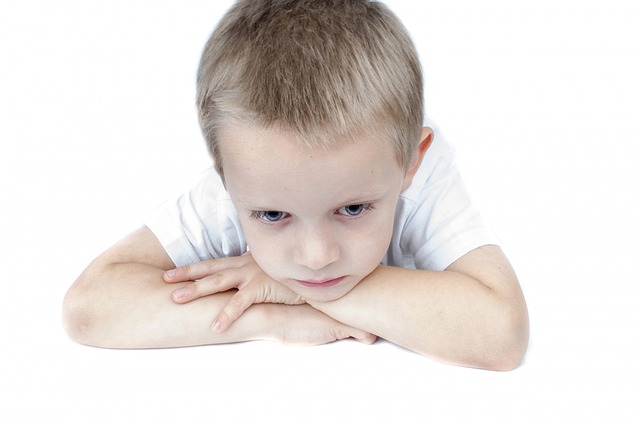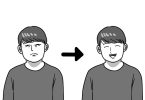“Narcissism isn’t instant. Childhood experiences form the puzzle,” said Dr. Karen Doherty, a noted child psychologist. Beyond praise, factors play in. For parents, the curious, or behavior enthusiasts. This article unveils how narcissism is rooted in the early years.
1. Parental Neglect.
Parental neglect is like the missing ingredient in a recipe for healthy self-esteem. It’s when kids don’t get the attention, love, and care they need from their parents. Psychologist Sigmund Freud once said, “Children are completely egoistic; they feel their needs intensely and strive ruthlessly to satisfy them.” If parents don’t provide a child’s needs for attention and validation, they might develop a kind of “me, me, me” attitude as a way to cope. Dr. Drew Pinsky, a psychiatrist, explains that narcissism can shield against the pain of feeling unimportant. Acting like you’re the best thing can mask those feelings of neglect.
2. Genetics and Personality Traits.
Genetics and personality traits play a role in how a personality trait like narcissism develops, especially in childhood. Imagine you have a mix of characteristics inherited from your parents, like your mom’s sense of humor and your dad’s determination. Your genetics influence these traits. When it comes to narcissism, there’s a connection too. If your parents have certain personality traits, you might inherit a combination of those traits. Some experts believe there’s a genetic basis for personality traits, including those related to narcissism. It’s like having a blueprint that sets the stage for how you might develop as you grow up.
Related: 10 Signs You Got CPTSD From Narcissistic Abuse.
3. Immense Pressure from a Narcissistic Parent.
Experts like psychologists and psychiatrists found that when children feel pressured to meet unrealistic standards by a narcissistic parent, they might believe their worth depends on how much they please that parent. It can lead to an adaptation; they become more focused on themselves, just like their narcissistic parent. There’s this theory called “parental mirroring” that fits in here. Psychologists discuss how kids need their parents to reflect on their feelings and experiences. It helps them develop a healthy sense of self. But if a narcissistic parent is only interested in their reflection, the child can feel neglected, like their feelings don’t matter. So they might learn to focus on themselves to cope.
A Book: Why Does He Do That?: Inside the Minds of Angry and Controlling Men.
4. Familial Competition.
A hierarchy takes shape when a narcissistic parent has more than one child. They’re like writing a story and assigning roles to each child, almost like characters in a book. You might have heard of “The Golden Child,” the family’s shining star. The narcissistic parent showers them with attention and praise. Then there’s the scapegoat, who tends to be on the receiving end of the narcissist’s anger and frustration. This role often falls on the second oldest or the most outspoken child. Now meet the enabler, who could be the other parent or even one of the daughters. They feed into the narcissist’s need for attention and admiration. Then the surrogate parent had to grow up fast; they’re responsible for caring for their siblings, almost like a mini-parent.
Lastly, there’s the mascot, the youngest sibling. They’re the clowns in the circus, trying to distract everyone from the real issues. Psychologists believe these roles are according to birth order, appearance, and personality. Siblings might naturally compete for their parent’s attention, and if there’s a narcissist in the mix, this competition can get intense. This whole dynamic can lead to the development of narcissism in childhood.
5. Environmental Factors.
Experts in psychology, like good old Sigmund Freud, have talked about how childhood experiences can significantly impact how we turn out as adults. When it comes to narcissism, the environment we grow up in plays a role. Imagine a kid who always receives praise for every little thing they do, like they’re the center of the universe. They might start thinking they’re extraordinary and deserve all the attention. That’s where the seeds of narcissism begin to grow. So the environment where a kid grows up could lead to narcissistic tendencies.
Recommended: Healing from Hidden Abuse: A Journey Through the Stages of Recovery from Psychological Abuse.
Dr. Jean Twenge, another psychologist, even talks about how our modern world, with social media and all, can fuel narcissism. When kids constantly get likes and followers for their posts, it can boost their ego even more. But not everyone who gets much attention as a kid turns into a full-blown narcissist. It’s just one piece of the puzzle: nature (your genes) and nurture (your environment) also play a role.
6. Physical or Emotional Abuse.
Dr. Nancy McWilliams, a renowned psychologist, once mentioned that sometimes kids who face abuse use narcissism as a defense mechanism. It’s like putting on armor to shield themselves from the hurt they felt before. So, in a way, narcissism might become a way for them to cope with the pain and fear they experienced during childhood. It’s a bit like a survival instinct. If kids feel like they’re not getting the love and care they need, they might focus more on themselves to compensate for that lack. It can then evolve into full-blown narcissism as they grow up.
Read More: 10 Signs You’re Living With a Narcissist.
7. Cultural Influences.
Psychologist Eric Erickson talks about stages of development, and during childhood, there’s a stage where kids are figuring out their identity. If a culture promotes individualism and emphasizes success and uniqueness, it can nudge kids toward developing more narcissistic traits. Take social media, for example. Experts like Gene Twenge talk about how platforms like Instagram and Facebook can make people focus on how they present themselves to others. This constant pressure to show off and get validation can boost narcissistic tendencies.
8. Excessive Criticism and Devaluation.
Psychologists and experts suggest that children who experience harsh criticism and devaluation can mess with their self-esteem. Dr. Richard Brouillette, a psychologist, once said that kids who consistently hear negative stuff about themselves might start believing they’re not worthy or deserving. So, picture a young mind like a sponge; it soaks up all the feedback it gets. If it’s mainly negative, the sponge might start ringing out these feelings of self-importance later. They’re trying to prove to themselves and others that they’re better than what others made them believe.
Related: Narcissistic Mothers and the Damage they do to their Children.
9. Overindulgence or Pampering from Parents or Other Caregivers.
Psychologists and experts notice that when kids are excessively praised and shielded from challenges, they might not learn how to handle criticism or setbacks later in life. That can make them think they’re always correct and deserving of special treatment. Dr. John Twenge, a psychologist, said kids who often hear they are special too often without earning it can start to believe they’re entitled to everything. It’s like if you were given a trophy just for showing up to a game, even if you didn’t do anything, you might start expecting awards for everything and feeling like you deserve them. That’s a bit like how narcissism can grow.
If you’re always given everything without effort, you might start thinking you’re better than others. Dr. Craig Malkin, another psychologist, put it like this: “When parents don’t set limits and don’t teach their children to consider other people’s feelings, it can create an inflated sense of self-importance.”
Related: 10 Things Narcissistic Parents Do To Their Children.
10. Overprotective Parenting Style.
That’s when parents are super cautious and hover around their kids, always trying to shield them from anything remotely risky or challenging. Experts have noticed that this parenting can play a role in developing narcissism in childhood. Children far from challenges might not learn to deal with setbacks or failures. So it’s all about finding a balance. Kids need a bit of independence and room to learn from their own experiences. They need to understand that not everything will always go their way, and that’s okay. It helps them develop a healthier sense of self and empathy towards others.
Remember, childhood is like molding clay; it’s malleable and takes shape based on the impressions it absorbs. So whether you’re a parent, a friend, or someone who cares, let’s all do our part to nurture well-rounded individuals who shine bright without blinding others. After all, a little humility goes a long way, and a touch of self-love mixed with understanding can create the perfect recipe for a more harmonious world.
Read More: What Causes Someone to Become a Narcissist?
Sharing Is Caring!






